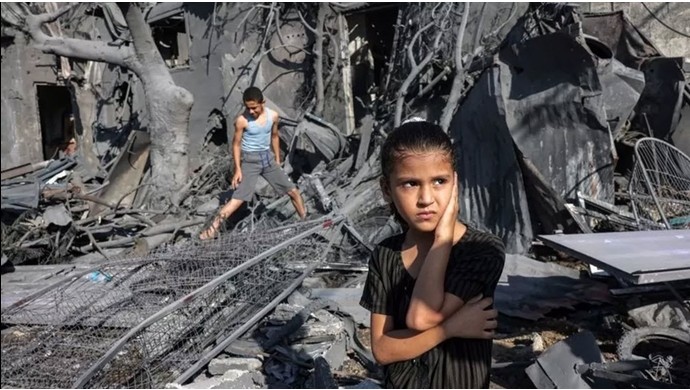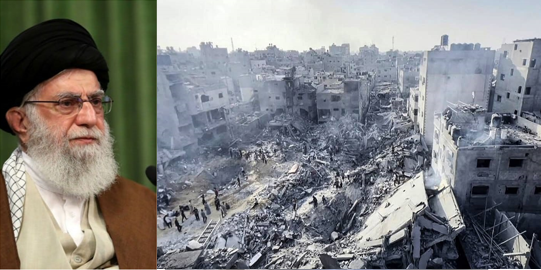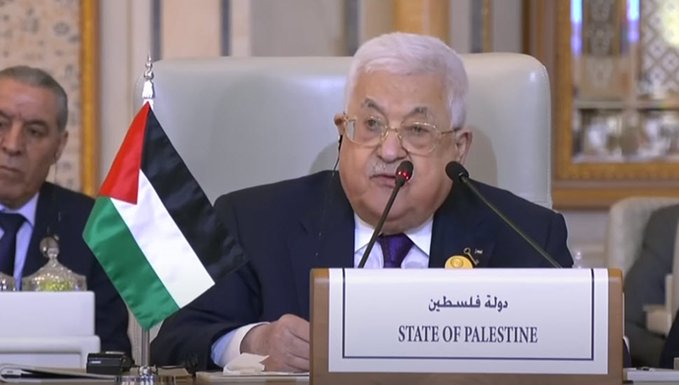
This approach, strongly advocated by Palestinian President Mahmoud Abbas, aligns with previous international agreements and enjoys widespread support. However, the Iranian regime remains a notable exception to this consensus, starkly opposing the two-state solution and advocating for a “one-state” alternative.
The opposition of the Iranian regime, led by President Ebrahim Raisi and Supreme Leader Ali Khamenei, not only undermines the peace process but also reveals a deep-seated enmity towards the Palestinian government and its leading organization, the Palestinian Liberation Organization (PLO). This stance is seen as a reflection of the Iranian regime’s intrinsic reactionary nature, preferring a state of perpetual crisis and conflict to maintain its own survival.

At a recent summit of Arab and Islamic countries in Riyadh, where Mahmoud Abbas presented the case for the two-state solution, President Raisi proposed the “one-state” solution, portraying it as a “completely democratic solution” that includes Muslims, Christians, and Jews. This proposition, however, was seen as a move to sideline the Palestinian government’s demands and perpetuate the Iranian regime’s anti-Israeli rhetoric.
Ali Khamenei’s regime has shown a disregard for public opinion and democratic processes, as evidenced by its manipulation of presidential elections to ensure Raisi’s candidacy. This same disregard is now evident in its approach to Middle East peace, defying the general consensus and focusing solely on the regime’s survival.
Nasser Kanaani, the spokesperson for Iran’s Ministry of Foreign Affairs, echoed this sentiment. In response to a question from an Arab media reporter, he dismissed the two-state solution, instead advocating for a unified Palestinian government as the sole solution. This perspective, reported by the state-run Iran Press news agency on November 13, further cements Iran’s isolation in the region.

This opposition to lasting peace stems from the regime’s dependence on continued war and conflict for its survival. The ongoing hostilities provide a pretext for the regime, particularly the Revolutionary Guards (IRGC), to divert Iran’s wealth towards its terrorist proxies and increase internal repression, as seen in the surge of executions and arrests since October 7.
In essence, the Iranian regime’s stance on the Middle East peace process reveals a fundamental incompatibility with any solution that leads to regional security and stability. Without an active war, entities like the IRGC lose their justification, making Iran’s regime an unlikely contributor to any effective peace deal in the region.

MEK Iran (follow us on Twitter and Facebook), Maryam Rajavi’s on her site, Twitter & Facebook, NCRI (Twitter & Facebook), and People’s Mojahedin Organization of Iran – MEK IRAN – YouTu







